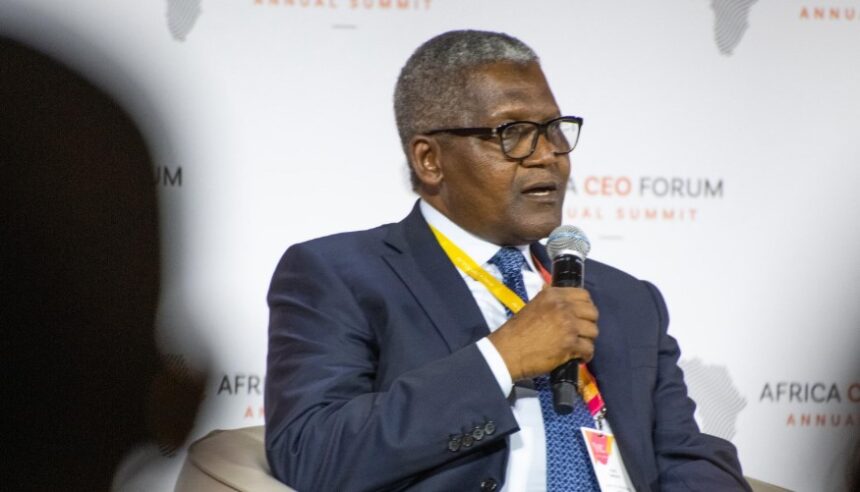The Dangote Petroleum Refinery and the Depot and Petroleum Products Marketers Association of Nigeria (DAPPMAN) are locked in a public dispute over fuel pricing and distribution logistics. DAPPMAN, representing private depot owners, claims that transporting fuel from Dangote’s Lagos refinery to other parts of Nigeria incurs substantial costs, which they argue should be subsidized by the refinery. Dangote vehemently denies these claims, asserting that its ex-gantry pricing is transparent, based on production costs and regulated margins, and includes no hidden subsidies. The refinery maintains that marketers are responsible for their own distribution costs, including coastal shipping, and accuses DAPPMAN of attempting to shift these expenses onto Dangote. The refinery insists it has no obligation to subsidize marketers, especially given the Federal Government’s removal of fuel subsidies in May 2023.
The heart of the contention lies in DAPPMAN’s assertion that Dangote owes them ₦1.505 trillion in subsidies, a figure the refinery categorically refutes. Dangote clarifies that its sales prices are calculated based on production costs plus a regulated margin, consistent with industry practices. The refinery contends that DAPPMAN’s demand essentially equates to absorbing the marketers’ distribution costs, a burden Dangote refuses to bear. The refinery further points out that it has successfully distributed fuel nationwide through road and rail infrastructure, demonstrating its logistical capabilities. This direct distribution, Dangote argues, negates DAPPMAN’s claim that coastal shipping is essential and therefore subsidizable.
Dangote emphasizes that it has consistently maintained its position on the non-existence of any subsidy arrangements with marketers. The refinery reiterates that the Federal Government’s removal of fuel subsidies eliminates any basis for such claims. Dangote accuses DAPPMAN of spreading misleading information and reaffirms its commitment to providing affordable fuel nationwide. The company published a breakdown of the alleged ₦1.505 trillion subsidy demand, further solidifying its stance against what it deems an unfounded claim. This public back-and-forth between Dangote and DAPPMAN highlights the ongoing tensions within Nigeria’s downstream petroleum sector.
The dispute unfolds against a backdrop of broader challenges within Nigeria’s petroleum industry. The Nigeria Union of Petroleum and Natural Gas Workers (NUPENG) recently staged a nationwide strike, protesting issues related to worker welfare, job security, and alleged unfair practices. This strike disrupted fuel distribution, underscoring the fragility of the nation’s petroleum supply chain. The NUPENG strike and the Dangote-DAPPMAN dispute have reignited the debate surrounding the impact of deregulation and subsidy removal. Concerns are rising that the focus on cost-cutting and efficiency is disproportionately impacting workers and consumers.
Dangote Petroleum Refinery, in its statement, emphasizes its commitment to energy security and affordable fuel prices for Nigeria. The company insists that its pricing structure is transparent and fair, reflective of production costs and regulated margins. Dangote highlights its established distribution network, utilizing road and rail infrastructure, as evidence of its capacity to effectively supply fuel nationwide. The refinery maintains that its operations adhere to the principles of a deregulated market, where each player bears its own logistical and operational costs.
The disagreement between Dangote and DAPPMAN reflects the broader complexities of Nigeria’s transition to a deregulated petroleum market. The removal of fuel subsidies, while intended to promote efficiency and market competition, has also created new challenges in terms of pricing and distribution. The competing interests of stakeholders, including refineries, marketers, unions, and consumers, are becoming increasingly apparent. The ongoing debate necessitates a balanced approach that ensures a stable and affordable fuel supply while also addressing the legitimate concerns of all parties involved. The resolution of the Dangote-DAPPMAN dispute, along with the issues raised by NUPENG, will be crucial in shaping the future of Nigeria’s downstream petroleum sector.


